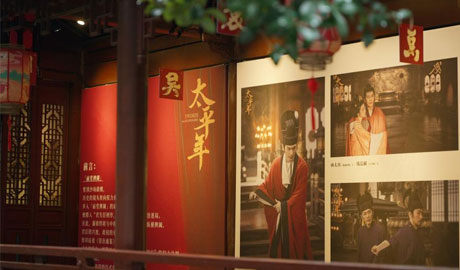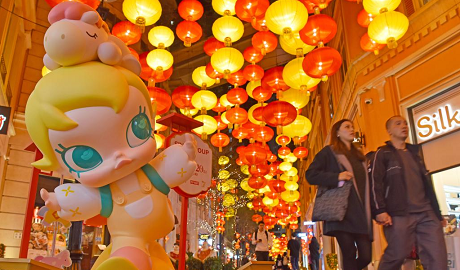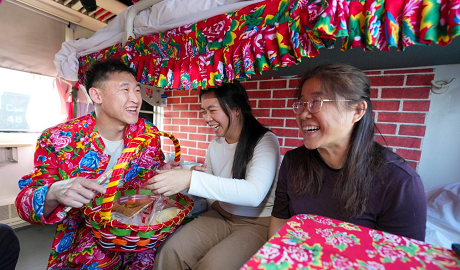

During the War of Resistance, in addition to seizing our land and plundering our resources, the Japanese invaders also did their utmost to loot our ancient books and cultural relics.
Japanese records clearly state that every division of the Japanese army was equipped with a "Geographical and Strategic Data Unit." Once a place was occupied, an "Occupied Area Books and Documents Receiving Committee" would be established to seize collections from official institutions, schools, libraries, and private owners.
Zheng Zhenduo was a pioneer of the "May Fourth Movement". His literary and academic works were celebrated nationwide in the 1920s and 1930s. When the war broke out, he was in Shanghai editing the large-scale literary journal World Literature Series for Life Bookstore. Around culture in Shanghai at that time, there were two interconnected circles: one of scholars, writers, and publishers; the other of collectors, antiquarian book dealers, and librarians. Zheng was a central figure in both networks.
Living in Shanghai, Zheng witnessed the dispersal of books: all sides scrambled to seize them, with the Japanese openly looting, profiteers reselling, and Western powers reaping benefits. The head of the Oriental Division of the U.S. Library of Congress, Arthur W. Hummel, boasted smugly: "Chinese ancient books are flowing steadily into America."
Faced with this situation, Zheng was burning with anxiety and felt a profound sense of duty: "If I do not help the country do something now, our descendants will have to go abroad to see these books!"
Relying on the resources of Kaiming Bookstore, Zheng organized the "Literary Preservation Society" to serve as a base from which to contest with the Japanese for priceless books and manuscripts. He swore to himself: "To collect rare books in times of chaos, to safeguard documents as in the days of the devastation—such is the gravest responsibility!"
Thus, he frequented Kaiming Bookstore, China Bookstore (Shanghai), Laiqing Pavilion, and numerous bookshops, forming a diverse "friends circle." Lu Xun, Ba Jin, Li Jianwu, Qian Zhongshu, Xin Di...... all were guests at his table; book dealers familiar with circulation channels and pricing were also his allies. Yet some with ulterior motives gathered around him, too. For the sake of books, Zheng maneuvered among them, contending in secret with various forces.
As a man of letters, Zheng's love for books knew no bounds: "Whenever a book appeared that I wished to obtain, if it were within my power, I would spare no effort to acquire it, until I succeeded. I would pawn clothes and cut down on food without hesitation. Thus I was often penniless, while books filled my room to the rafters."
But at this time, he was no longer buying books for himself. He was preserving the nation's cultural lifeline, collecting and transferring important works to the National Central Library in Chongqing and other safer places.
His activities soon attracted Japanese attention.
Shimizu Tosaburō, then First Secretary at the Japanese Embassy, whose main mission in China was to recruit collaborators, was also in charge of book and intelligence work in occupied areas. He oversaw both the "Occupied Area Books and Documents Receiving Committee" and the "Central China Construction Data Compilation Committee" as well. He tried repeatedly to approach Zheng, hoping Zheng would take charge of "cultural affairs." Zheng sternly refused.
To avoid harassment, Zheng hid constantly, and few knew where he lived.
While keeping himself "isolated", Zheng's goal was clear: the more the Japanese coveted certain books and artifacts, the more he sought to collect and protect them. He especially focused on local histories and geographical works, and prioritized collecting Woshi (Chinese-written histories of Japan from the Ming and Qing dynasties). His diaries record his struggles against the Japanese and Western powers for acquisition of books and artifacts.
Thus, Zheng contended with profiteers and enemies alike, maneuvering among book dealers and collectors in Shnaghai. Eventually, he managed to package over 3,200 rare ancient works into nearly 2,800 parcels and ship them, under the noses of the occupiers, to Hong Kong.
How many books did China lose during the war? According to the Bulletin of the Library Association of China, before the war China had 3,744 libraries; by the end of 1937, 2,166 had been lost, with nearly 90 million books destroyed or seized. Private collections suffered even more devastating losses.
Yet under the heavy pressure of the Japanese, at Shanghai—the most crucial hub of Chinese book circulation—Zheng did his utmost to keep ancient texts alive, embodying the belief that "as long as books survive, we survive." He personified the integrity and resolve of China's intellectuals. Statistics show that from January 1940 to November 1941, in less than two years, he and the Society acquired over 3,800 rare works, including more than 300 Song and Yuan editions—on a scale rivaling that of the Peking Library, which had been in operation for more than two decades.
Most of these books were later organized and transported by colleagues from China Bookstore (Shanghai) to Chongqing, Hong Kong, and other places. Some looted by the Japanese were reclaimed after the war because Zheng and the Society had kept detailed catalogs. In his Notes from Seclusion, Zheng expressed his gratitude to his fellow bookmen: "In those long eight years, they never revealed a word."
......
Eighty-four years later, reporters came to Shanghai to trace Zheng Zhenduo's footprints in rescuing ancient books.
China Bookstore (Shanghai) on Yuqiaqing Road closed in 1942, and its antiquarian book business was merged into the Shanghai Ancient Books Bookstore. The newly renovated Shanghai Ancient Books Bookstore is now the largest in the country. Its glass curtain wall is designed to resemble turning pages, and in the atrium hangs a plaque inscribed by Gu Tinglong: "Preserve ancient and modern scholarship, gather the essence of heaven and earth."
A replica edition of the Yongle Encyclopedia published by the National Library Press is displayed in the lobby, while electronic screens showcase rare literary documents. Stories of Zheng Zhenduo and other patriots who risked their lives to save books and safeguard China's cultural lifeline under bombardment attract streams of readers. AR technology recreates the bookstore's wartime scenes, drawing visitors who scan QR codes to access texts and take photos as mementos.
What they gain from scanning is more than digital archives of rare books—it is the cultural nourishment left to us by great masters with profound devotion to the nation. What they capture in photos is more than the image of book-buying in those years—it is the "Great Wall of Spirit" built by cultural pioneers in the piles of ancient texts!
Find the original article at https://news.neamco.com/2025-09/08/content_38269923.htm
Written by Shu Jinyu, Reporter of China Reading Weekly
Translated by Wang Xinyuan

Various festive events held across China to celebrate upcoming Chinese New Year


Hit epic drama sparks interest in lesser-studied chapter of ancient Chinese history

Lanterns hoisted to mark upcoming Chinese New Year in Hong Kong

"In-train fair" launched in NE China's Heilongjiang amid Spring Festival travel rush
点击右上角![]() 微信好友
微信好友
 朋友圈
朋友圈

请使用浏览器分享功能进行分享
